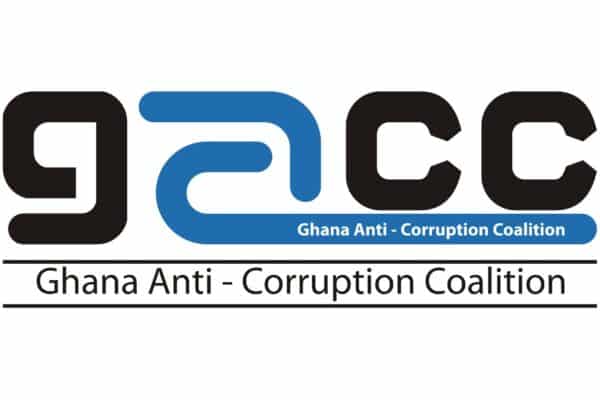 Country: Ghana
Country: Ghana
Website: www.gaccgh.org
Social media: Twitter, Facebook, YouTube, LinkedIn
Focal Point: Faustina Djabatey, Communications Officer
Email: gacccomms@gmail.com
Tel: 0244080921/0302 230483
Mission and vision
Mission: To promote anti-corruption and good governance initiatives in Ghana through capacity-building, research and advocacy interventions by engaging coalition members and other key stakeholders operating at the regional, national and international levels.
Vision: A Ghana that is free from corruption where honesty, transparency, accountability, integrity and inclusion are upheld, thereby, helping to improve the standard of living of the people.
General description of the CSO work in the anti-corruption area
GACC has over the years built the capacity of Civil Society Organisations (CSOs) on anti-corruption and whistleblowing nationwide. It has mobilised grassroots to demand accountability from duty bearers nationwide through the formation of Local Accountability Networks LANets and has advocated and lobbied for the passage and amendment of the Whistleblower and the Public Procurement Acts.
The organization has also developed indicators for monitoring corruption in Ghana, built media capacity and formed the Network for Journalists Against Corruption (JAC), in addition to coordinating the Business Action Against Corruption Network (BAAC) and Business Integrity Forum (BIF) in Ghana for businesses to build self-monitoring mechanisms to promote business integrity.
GACC has coordinated the monitoring of public contracts in Ghana, Liberia, Nigeria and Sierra Leone and hastracked the implementation of the Recommendations of the Public Accounts Committee (PAC) of Parliament.
Specific description of the CSO work in relation to the UNCAC
GACC in October 2012 in collaboration with CHRAJ initiated a national discussion on the UNCAC and the preparedness of Ghana for the review process. The two institutions organized the first Round Table Forum for Key Stakeholders to share knowledge and information on UNCAC, the review process, methodology and shared experiences from other countries, such as Uganda, which had already successfully gone through the process. Discussions at the Round Table Forum revealed that a majority of key stakeholders were not aware that Ghana was due to be assessed and that not much preparation had been done for the review process. The only action that had been taken was the nomination of a focal person. Following the Round Table Forum, various consultative meetings were held to mainstream the UNCAC review process into the National Anti-Corruption Action Plan (NACAP) and advocate for the Commission on Human Rights and Administrative Justice (CHRAJ) to be given the role of focal institution to ensure implementation of the outcomes and sustainability of the review process.
Various consultations were held with the Narcotics Control Board, UNODC, Commission on Human Rights & Administrative Justice, Financial Intelligence Centre and the Attorney General’s Department, after which an agreement was reached to change the focal institution to CHRAJ. Following that, an UNCAC Review Working Group was formed and governmental experts nominated by the Attorney General’s Department. The membership of the Steering Committee was broad including representatives of Civil Society (Ghana Anti-Corruption Coalition, Ghana Integrity Initiative, Centre for Democratic Development CDD-Ghana, African Peer Review Mechanism and Business Integrity Forum from the Private Sector).
In terms of broadening the consultations and dissemination of information to the broader citizenry, civil society was not engaged beyond the members of the Steering Committee. Further, the media were not well informed about the review process to enable further education of the citizenry through their programs and activities.
Specific description of the CSO work in relation to the review mechanism of the UNCAC
GACC through a small grant from UNODC engaged with about 35 SMEs on the role of the private sector in UNCAC implementation and the review process in May 2013.
GACC serves on Ghana’s UNCAC Steering Committee.
If you or someone from your organization has participated in a workshop on UNCAC and its review mechanism organized by UNODC/ UNCAC Coalition, please indicate who, when and where
Mrs. Florence Freda Dennis, former Executive Secretary, participated in the 5th Session of the COSP to the UNCAC in Panama City from 25-29 November 2013.



